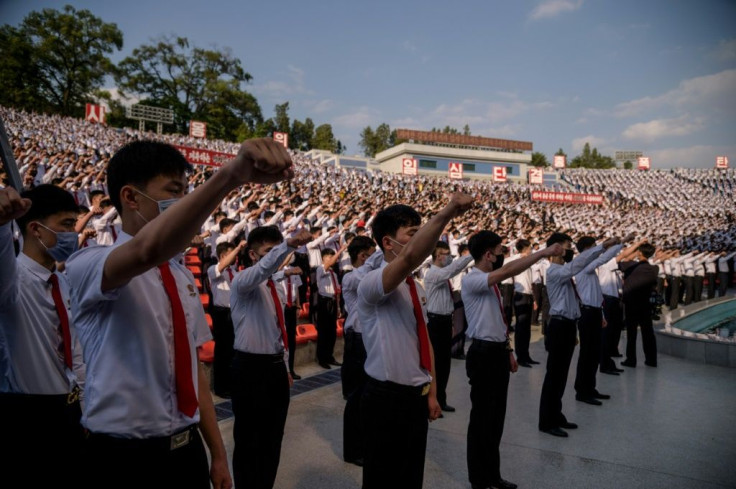North Korean Army 'Fully Ready' For Action Against Seoul: KCNA
North Korea's army is "fully ready" to take action against the South, state media said Tuesday in the latest verbal sabre-rattling from Pyongyang, days after its leader's sister threatened military moves against Seoul.
Since early June, North Korea has issued a series of vitriolic condemnations of the South over activists sending anti-Pyongyang leaflets over the border -- something defectors do on a regular basis.
Last week, it announced it was severing all official communication links with South Korea.
The leaflets -- usually attached to hot air balloons or floated in bottles -- criticise North Korean leader Kim Jong Un over human rights abuses and his nuclear ambitions.
Analysts say Pyongyang may be seeking to manufacture a crisis to increase pressure on Seoul while nuclear negotiations with Washington are at a standstill.
The General Staff of the Korean People's Army (KPA) said on Tuesday that inter-Korean relations were worsening and it had been studying an "action plan" to "turn the front line into a fortress".

That included re-entering areas that had been demilitarised under an inter-Korean agreement, it added.
South Korean reports said that could mean reintroducing guard posts near the heavily fortified border, which the two Koreas agreed to scrap in 2018 to defuse tension.
The North Korean army will also plan to carry out "large-scale leaflet scattering" into the South, the statement said.
On Monday, South Korea's left-leaning President Moon Jae-in urged the North not to "close the window of dialogue".
Since Pyongyang condemned leaflet launches, Seoul's unification ministry has filed a police complaint against two defector groups and warned of a "thorough crackdown" against activists.
The two Koreas remain technically at war after Korean War hostilities ended with an armistice in 1953 that was never replaced with a peace treaty.
© Copyright AFP 2024. All rights reserved.







